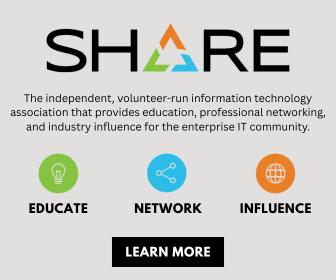We’ve always believed in providing opportunities for our people to develop their skills, and in encouraging the next generation of talent. Mentoring is central to both.
Mentoring is one of the most powerful personal developmental activities available. It’s sometimes confused with coaching and, while there’s some crossover, they are quite different. Coaching is about unlocking someone’s potential to maximize their own performance: helping them to learn rather than teaching them. It focuses on building self-awareness, emotional intelligence, and a wider perspective.
Mentoring is typically longer-term, more informal, and directly relates to a role: a learning relationship between two people sharing knowledge and experience. Focused on personal growth and empowerment, it relies on mutual trust and respect between mentor as teacher and mentee as learner.
As part of our efforts to address the continuing skills shortage, mentoring is a key aspect of our New to Z (NTZ) initiative that identifies potential mainframe talent and provides a pathway into the industry. But we decided to go further, making mentors available to all our employees, who can choose more than one if they wish, and from different parts of the business. (By the way, every employee is also assigned a coach).
Being asked to become a mentor can feel like an honor, but can also be a little overwhelming, even daunting, especially if you’re a first-timer. You may question whether you’re qualified to help guide someone like this. The good news is, you almost certainly are qualified.
If you’re thinking about becoming a mentor, or asked to be one, here are 10 tips to help the process be as successful and engaging as you want it to be.
1. Get to know your mentee.
Ask lots of questions, taking the time to learn what makes them tick. What are their professional goals? What do they think is holding them back? How can you support them in both areas? The urge to tell someone what to do is strong but that’s not a mentor’s role. The better you know your mentee, the more you can build a mutually beneficial relationship.
2. Know yourself.
You also need to assess what you are offering as mentor: your skills, strengths, experiences, knowledge and networks. Go into the relationship knowing what you can bring to the table, then partner with your mentee to align that with what they want or need.
3. Establish expectations.
Set clear expectations of what a healthy relationship looks like. The mentee needs a purpose for the relationship to be impactful. And the mentee is responsible for taking notes, setting action items, and applying the knowledge or skills gained. The mentor’s job is providing guidance and support to further their goals.
4. Understand what the mentee wants.
Get to the heart of what they want to learn. Mentors sometimes fall into the trap of talking more than listening. Work to understand why you were assigned as a mentor, and how you can help them to move forward. Talk about their aspirations and objectives. Then think in practical terms about how you can help. And don’t forget about the little things: it’s not all about big insights or groundbreaking advice. The best mentors are also keen to help with the smaller things that, for a mentee, could be big issues.
5. Let the mentee lead and be an active listener.
Mentoring is guiding and empowering, not directing. Make the mentee the star and don’t be prescriptive: give encouragement, work together to identify the skills and resources they have or need, exploring ideas to reach their goals. Use your expertise only to inform your questions. Listening is critical: let the mentee talk and don’t feel you need to offer all the answers. People often know what they need, what’s for the best, but lack the opportunity to talk things through with an intelligent and engaged colleague. Being that sounding board is invaluable.
6. Build a rapport, and empower the mentee.
Demonstrate a genuine interest in your mentee and create a safe space. Be supportive and honest, keeping appointments and honoring agreements. Always do what you say you’ll do, where humanly possible. Introduce your mentee to your networks. Share your experience, challenges and wisdom but don’t intervene too quickly. Ask guiding questions rather than advising, and encourage mentees to find their own solutions.
7. Share the good and the bad.
Mentors and especially first-timers need to realize that you’re not expected to be a superhero, with every answer or solution. It’s more important to be authentic, allowing a mentee to learn from your mistakes and growing pains as well as your good choices and best practices. Be comfortable with saying “I don’t know”.
8. Don’t forget your mentee’s situation.
It can be tricky to balance the huge amount of experience that qualifies you as a mentor with the mentee’s own situation. Remember what it was like when you were sitting in their chair, at that stage of your career. Ask yourself, is this advice (e.g. “what I would do”) applicable in the mentee’s situation?
9. Use coaching skills as needed.
Mentoring means drawing on your skills, knowledge and experience to advise, whereas coaching incorporates open-ended questions to create awareness on behalf of the mentee. Toggling between this “pull and push” approach can be a good way to provide a rounded, high-quality approach.
10. Make the relationship reciprocal
A collaborative trusting relationship is essential for mentoring, and reciprocity is vital: each partner contributing to the relationship and learning from the other. Without the presence of learning, mentoring doesn’t exist. It’s key to engage and guide your mentee appropriately, to create and maintain that positive learning environment.
One final piece of mentoring advice: have confidence in your abilities and don’t second-guess yourself. Self-criticism can be a roadblock that keeps us from being a great mentor or leader. “Get over yourself” is sound advice, because judging ourselves too harshly means we can question every decision. Your mentee is focused on their development: it’s not about you. Your job is to do your best, teaching and advising from your personal and professional experience – “here’s what I did” – and knowing that you’ll always be working on what you teach.
If you’re interested in hearing about the mentee experience, take a look at this blog by my Vertali colleague Leanne Wilson, now a senior security consultant.
https://vertali.com/








0 Comments